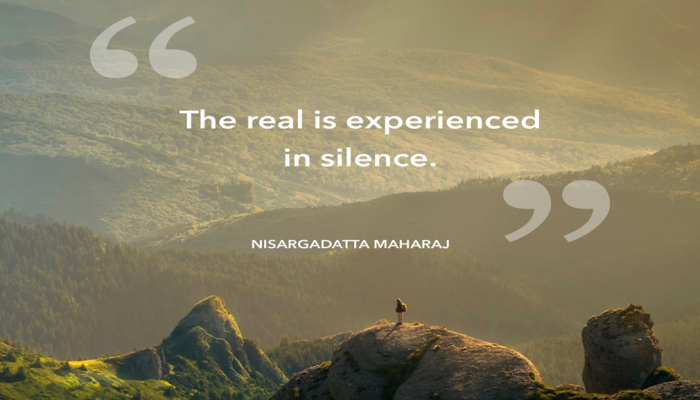What is Spirituality and how does it help us?

INTRODUCTION
A vital component of human existence, spirituality invites us to explore the realms of the unseen and intangible and extends beyond the limitations of our physical environment.
It includes the search for a greater understanding of who we are, how we relate to one another, and how we relate to something more than ourselves, such as the divine, a higher awareness, or a higher power.
In this blog post, we’ll set out on a quest to understand what spirituality is and explore its significant influence on our lives.
We’ll look at how spirituality may promote personal development, give us a sense of direction and meaning, support our mental and emotional health, and help us feel more at home in our bodies and in the world.
Understanding spirituality requires more than just academic understanding. It takes an open mind, being prepared to go into the depths of our inner self, and accepting the beauty and interconnection of the cosmos.
In order to achieve a better understanding of our purpose and place in the world, spirituality urges us to question, search, and reflect on our beliefs, values, and experiences.
This blog article will discuss many spiritual practices that can strengthen our spiritual bonds and improve our well-being, including meditation, prayer, and natural connection.
We will also talk about how to incorporate spirituality into our everyday activities so that we can benefit from its transforming power even while going about our daily business.
This blog post seeks to offer insights, inspiration, and advice for your unique spiritual path, regardless of your previous experience with spirituality or if you have been searching for answers throughout your life.
It is an invitation to delve into the wide realms of spirituality and learn how it may ease the challenges of life, bring about inner peace, and help us connect to the divine energy that resides inside and all around us.
Come along as we explore spirituality and its enormous influence on our lives.
Let’s explore the tremendous knowledge and beauty that spirituality has to offer, as well as the transformational potential that every one of us possesses.
Table of Content
Understanding Spirituality

The idea of spirituality is open to many different interpretations and points of view. It touches on the most profound aspects of human existence and transcends the boundaries of religious beliefs and practices.
Examining spirituality’s core, universality, and significance to our lives is crucial if we are to comprehend it fully.
- Different interpretations and perspectives on spirituality:
Since spirituality is a very individual and subjective experience, it can be comprehended and interpreted in a variety of ways.
The beliefs, experiences, and cultural backgrounds of various people and civilizations may impact how they view spirituality in certain ways.
- Some people might link spirituality with religious faith, which entails devotion to a particular god or commitment to religious practices and teachings.
- Others can view spirituality as a more quiet and hidden path that emphasizes inner calm, self-discovery, and a link to a higher force or universal awareness.
- Some people could even see spirituality as an investigation of the connections between all living things and the natural environment.
- Exploring the essence of spirituality beyond religious beliefs:
Exploring the most profound aspects of the human experience and looking for a feeling of connection, meaning, and purpose that transcends the physical realm are central to spirituality.
Fundamentally, spirituality encourages us to take an internal journey of self-awareness, thought, and introspection.
It challenges us to examine the wonders of life and the cosmos as well as our own inner selves, beliefs, values, and motives.
A higher force, universal energy, or divine essence is something that spirituality also encourages us to recognize as being present.
It urges us to embrace our transcendent qualities and build a connection with this greater reality.
- Recognizing spirituality as a universal human experience:
Spirituality is a universal human experience that is not exclusive to any one group of people or cultural setting.
Humans have looked for an explanation for their existence, a reason for existing, and a connection to something greater than the material world throughout history and throughout many cultures.
Understanding spirituality as a shared human experience enables us to transcend: –
- Cultural and religious divides,
- Promoting compassion,
- Harmony, and
- Understanding between many people and groups.
It serves as a reminder of our shared humanity and our shared ambitions as we negotiate the challenges of life.
The Benefits of Spirituality

Numerous advantages of spirituality might have a favorable influence on multiple aspects of our existence.
It reaches deeper levels of our being than merely religious identification, encouraging personal development, emotional stability, and a sense of belonging to something bigger than ourselves.
Let’s look at some of the main advantages that spirituality might have for us.
The ability of spirituality to encourage personal development and self-realization is one of the deep advantages of religion.
We can comprehend ourselves, our beliefs, and our ideals better via spiritual practices and introspection. Our real potential may be discovered by going on a path of self-discovery, which is encouraged by spirituality.
Spirituality encourages us to see and appreciate our: –
- Strengths,
- Flaws, and
- Opportunities for progress by encouraging self-awareness and self-reflection.
It gives us the ability to live lives that are more authentically ours and with a greater feeling of purpose by enabling us to make decisions that are in line with our values.
- Emotional and mental well-being:
The importance of spirituality in improving our emotional and mental health cannot be overstated.
It offers us methods and strategies for navigating life’s difficulties, dealing with stress, and discovering inner calm.
By engaging in spiritual practices like meditation, prayer, and mindfulness, we may learn to: –
- Control our thoughts,
- Develop a feeling of present-moment awareness, and
- Access a rich source of inner peace.
It inspires us to let go of unfavorable feelings, practice gratitude, and develop a happy outlook.
We may attain higher levels of general well-being, satisfaction, and inner peace by fostering our emotional and mental health through spirituality.
- Interconnectedness and compassion (spirituality):
Understanding our interconnectedness and universal spirituality motivates us to show kindness, love, and service to others.
Our ability for empathy is strengthened, enabling us to comprehend and identify with the happiness and pain of others.
Through these deeds of kindness and compassion, we profoundly realize our feeling of fulfillment and purpose while also uplifting others and nourishing our own souls.
Along with these important advantages, spirituality has also been linked to: –
- Higher general well-being,
- Decreased levels of worry and despair, and
- Better physical health.
It provides a global perspective on life by uniting our physical, mental, emotional, and spiritual selves.
Exploring Spiritual Practices

Through spiritual practices, we may strengthen our ties to the divine, broaden our consciousness, and take care of our inner selves.
They provide us with the methods and resources we need to perform meaningful rituals, practice mindfulness, and go on enlightening journeys of self-discovery.
Let’s look at some of the main spiritual disciplines that can make our life better.
- Meditation and mindfulness (spirituality):
We may learn to calm our minds, develop inner peace, and strengthen our bonds with the Holy via the age-old practice of meditation.
It entails concentrating our attention, frequently on the breath or a particular object and objectively examining our thoughts.
With regular practice, meditation can provide us access: –
- To more profound realms of awareness,
- Clarity, and
- Profound inner serenity.
Being completely present in the present moment while maintaining an open-hearted awareness is the goal of mindfulness, which is closely tied to meditation.
It invites us to do a non-judgmental accepting observation of our thoughts, feelings, and experiences.
By engaging in mindfulness practices, we may improve our: –
- Self-awareness,
- Cultivate gratitude and compassion, and
- Get a greater appreciation for the beauty of daily life.
- Prayer and rituals:
We can interact with the divine or a higher force via the spiritual practice of prayer.
It can take many different forms, including reciting holy scriptures, expressing appreciation, or looking for direction and comfort.
Through prayer, we have a way: –
- To let go of our anxieties,
- Communicate our true aspirations, and
- Connect with the divine power that resides both inside and all around us.
Rituals are symbolic actions with deep spiritual meaning. They provide our spiritual practices with a feeling of shape and purpose.
- Candle-lighting ceremonies,
- Incense-burning ceremonies,
- Gesture-based ceremonies, and
- Ceremonial practices are all examples of rituals.
Rituals help us to enhance our relationship with the divine, honor the holiness of particular times or experiences, and foster peace and compassion in our lives.
A spiritual practice that enables us to access the innate wisdom and beauty of the planet is connecting with the natural world.
Spending time in nature may inspire awe and amazement in us, whether it be in a beautiful forest, by the sea, or in a peaceful garden.
It provides a chance to witness the interdependence of all living things and grow profoundly appreciative of the wonders of creation.
We may practice techniques like grounding in nature, where we sit with our backs against a tree or go barefoot to connect with the energy of the soil.
In order to strengthen our relationship with the divine presence innate in nature, we can also practice nature meditation by immersing ourselves in the: –
- Sights,
- Sounds, and
- Sensations of the natural world.
- Chanting and sacred sound:
Across nations and traditions, chanting and holy sounds have been employed to evoke a condition of inner tranquility, healing, and spiritual connection.
We may align our vibrations and tune into higher frequencies by repeating particular sounds, words, or mantras.
Chanting may help us establish a holy place within us that allows us to let go of our daily worries and reach a state of profound: –
- Relaxation,
- Concentration, and
- Spiritual receptivity.
We can discover spiritual practices that are compatible with our own beliefs, values, and tastes by investigating other spiritual traditions.
It is crucial to approach these practices with an open heart and mind, allowing our intuition and unique experiences to guide us.
We may create holy times and places in our life where we can reconnect with the divine and our true selves by infusing spiritual practices into them.
These practices provide doors to profound self-discovery, healing, and change, helping us to handle life’s ups and downs with inner strength and grace
Applying Spirituality in Daily Life

Spirituality can influence all areas of our everyday life and change our viewpoints, behaviors, and relationships.
It is not just restricted to brief periods of meditation or prayer.
By integrating spirituality into our daily routines and social interactions, we can tap spirituality’s capacity for transformation and use it to guide us through the challenges and joys of everyday life.
Let’s look at some useful strategies for integrating spirituality into our daily lives.
- Cultivating presence and mindfulness (spirituality):
One of the most crucial ways to incorporate spirituality into daily life is to practice being present and conscious in our interactions.
We can connect with ourselves, others, and the environment around us more deeply when we are totally present at the moment.
By concentrating on the present moment while performing routine things like: –
- Washing dishes,
- Going for a walk, or
- Having a discussion, we may practice mindfulness.
We may consciously use our senses to take in the sights, sounds, and sensations around us.
By doing this, we experience the richness and beauty of each moment and infuse our activities with a feeling of purpose and thankfulness.
- Practicing gratitude and appreciation (spirituality):
Gratitude is a significant spiritual practice that may change our perspective and increase our happiness and abundance.
Our general well-being may be greatly impacted by taking a moment each day to express thankfulness for the benefits and experiences we enjoy.
By recording our daily gratitudes in a thanksgiving diary, we may establish a practice of gratitude.
- Verbal affirmationsand introspective thoughts are some ways we might show our thanks.
By concentrating on the good things in our lives, we develop an abundant attitude and make ourselves more receptive to gifts.
- Embodying compassion and kindness:
Spirituality encourages us to be kind and compassionate to others as well as to ourselves.
We may intentionally decide to communicate with family, friends, coworkers, and even strangers with empathy and compassion.
Simple acts of kindness might include: –
- Lending a helping hand,
- Paying close attention to someone else’s worries, or
- Giving sincere praise.
Small acts of kindness may have a big impact, bringing healing and happiness to the world.
Conclusion
To sum up, spirituality is a transformational and personally individualized experience that offers an abundance of advantages for our general well-being.
By embracing spirituality, we give ourselves access: –
- To a profound connection with the divine,
- A greater knowledge of who we are, and
- A sense of greater meaning and fulfillment in life.
Additionally, spirituality fosters our connection to one another and the wider world.
It fosters a sense of oneness and common humanity by encouraging acts of kindness, empathy, and service.
We get a deep appreciation for the beauty of variety and a dedication to promoting harmony and understanding by realizing the divine presence within ourselves and all other living things.
By integrating spirituality into our daily activities, we may live more aware, meaningful lives.
Each day is given purpose and a stronger sense of connection to the divine when we practice: –
- Presence,
- Gratitude,
- Compassion, and
- The creation of holy moments.
I want to urge you to start your own special spiritual path as we wrap up our discussion about spirituality.
Accept practices that speak to your heart and let them lead you to increased spiritual awareness, inner tranquility, and personal development.
Keep in mind that developing your spirituality is a lifelong process that advances your progress toward a more sincere, happy, and fulfilling existence.


